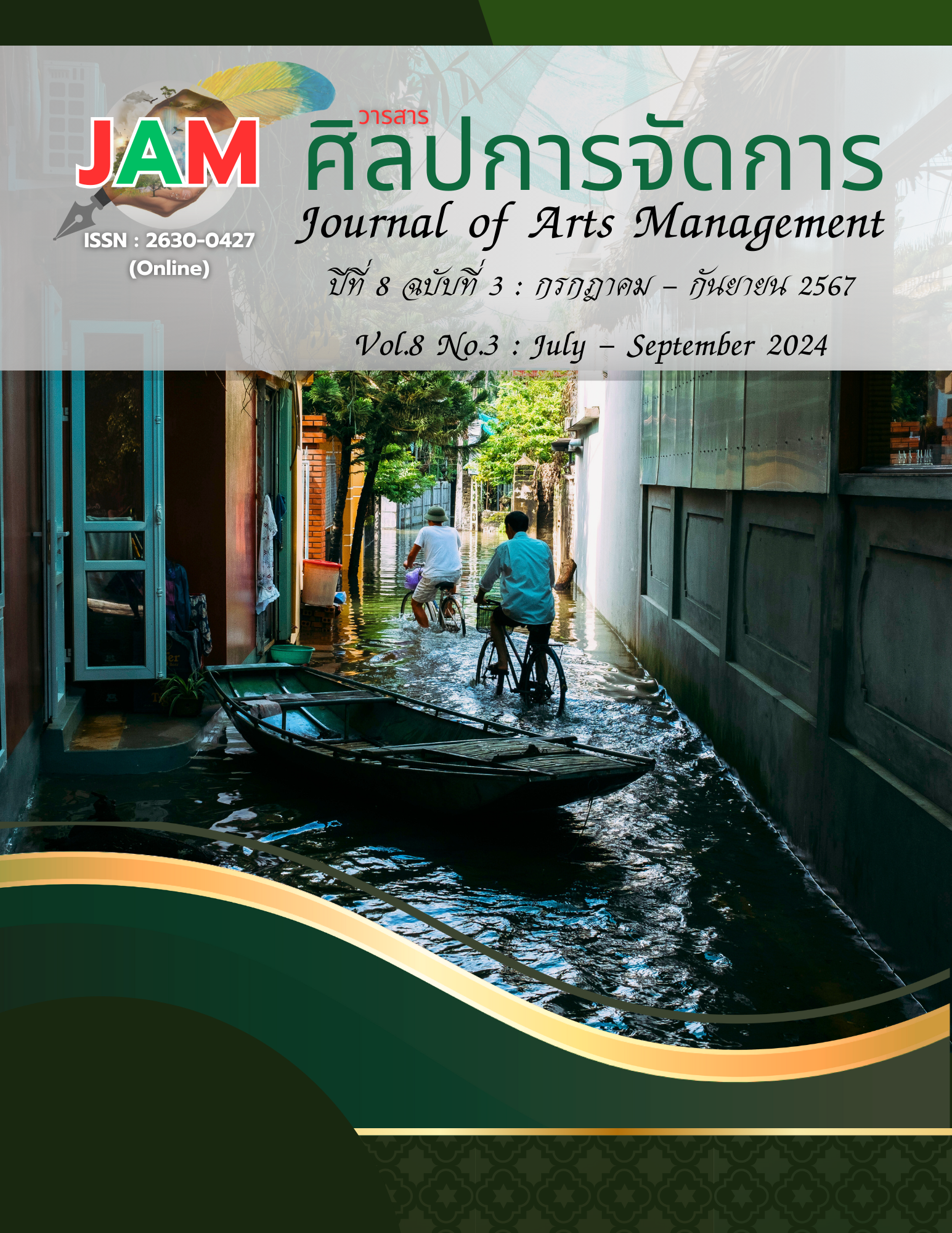Political Concepts of the New Generation in the Area of Surat Thani Province
Main Article Content
Abstract
This research aimed to 1) study and propose a political concept model through political opinions of the new generation in Surat Thani province, 2) study and propose a political concept model, and 3) study and propose a political concept model through social changes of the new generation. This research conducted qualitative research and presented descriptive research results to focus on studying the political concept of the new generation in Surat Thani province, leading to a conclusion and explanation of the phenomenon according to the research objectives.
From the study it was found that the new generation in Surat Thani province has political views and concepts that has variety Divided according to political ideology as follows: The first group is the reaction group that were the most politically active from the interview results that received straightforward answers Including asking questions and expressing opinions about political institutions through interviews next the liberal group is very prominent, especially from interviews that have a point of view that places importance on rights, freedoms, and the public interest of population This is the answer found in most interviews from every sample group. And the other group is the conservative group from the interview. In part of the answer who want to maintain traditional political institutions and social practices.
Article Details

This work is licensed under a Creative Commons Attribution-NonCommercial-NoDerivatives 4.0 International License.
Views and opinions appearing in articles in the Journal of Arts of Management It is the responsibility of the author of the article. and does not constitute the view and responsibility of the editorial team I agree that the article is copyright of the Arts and Management Journal.
References
Bunphap, T. (2013). The role of new media in creating social values and identity of Thai youth in Bangkok. Dhurakij Pundit University.
Common School. (2023, September 26). Join in celebrating the end of the 18-year war from "Yellow-Red" into the "Dark Age" era. [Video]. YouTube. https://www.youtube.com/watch?v=mxozumlueLY
Echo. (2020, October 6). Left-right in Thai politics [Video]. YouTube. https://www.youtube.com/watch?v=4xSNXb2CriA
Office of the Royal Society. (2007, July 9). Know and love Thai language. http://legacy.orst.go.th/?knowledges
Phramaha Nirut Yannawuttho., & Phramaha Apiwat Abhivajjaro. (2022). The young generation with the Thai government in the new normal era. Journal of Interdisciplinary Innovation Review, 5(2), A125-A139. https://so04.tci-thaijo.org/index.php/jidir/article/view/258980
Plodkaew, J. (2019). Political news exposure behavior of people in Samut Prakan Province[Independent study, Ramkhamhaeng University].
Promlee, S. (2021). Two ages, Two cultures and Thai politics. Pannya Journal, Faculty of Political Science, Ramkhamhaeng University, 28(3), 164-171.
Raksakaew, P. (2019). Modern political concepts. Journal of Political Science and Public Administration. Mahachulalongkornrajavidyalaya University, 1(1), 44-52.
Scaramuzzino, G.M., & Scaramuzzino, R. (2017). The weapon of a new generation? - Swedish Civil Society Organizations’ use of social media to influence politics. Journal of Information Technology & Politics, 14(1). DOI: 10.1080/19331681.2016.1276501
Songwanngam, S. (2014). Factors affecting the behavior of viewers in choosing to watch news programs of television stations in Bangkok[Independent study, Nation University].
Surasanthi, K. (2012). Communication knowledge. Faculty of Journalism and Mass Communication, Thammasat University.
Techapira, K. (2017). New political landscape. Matichon Weekly. https://www.matichonweekly.com/column/article_42308
Thitikulcharoen, Y. (1994). Communication theory. Ramkhamhaeng University.


